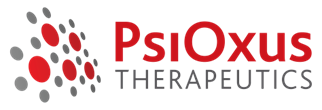Studies Identify a Phase II Dose and Demonstrate Best in Class Intravenous Delivery Profile Leading to an Expansion of the Clinical Program to New Indications
OXFORD, UK and CHICAGO – 3 June, 2014 – PsiOxus Therapeutics, Ltd. (PsiOxus), an award-winning biotechnology company developing innovative, novel treatments for cancer, announced that updates for its on-going international multicentre clinical program of the oncolytic vaccine enadenotucirev (previously known as ColoAd1) were presented at the 2014 American Society of Clinical Oncology (ASCO) Annual Meeting in Chicago, Illinois. Enadenotucirev is an oncolytic Ad11/Ad3 chimeric group B adenovirus that has previously been shown to selectively destroy metastatic solid tumours at low concentrations in pre-clinical models.
The EVOLVE Study
The EVOLVE (EValuating OncoLytic Vaccine Efficacy) trial is a phase I/II trial of intravenous administration of enadenotucirev to patients with epithelial cancers. Dr Emiliano Calvo from START Madrid, Centro Integral Oncológico Clara Campal, Hospital Madrid, Spain, presented A Phase I Study of Enadenotucirev, an Oncolytic A11/Ad3 Chimeric Group B Adenovirus, Administered Intravenously in Patients with Metastatic Epithelial Tumours, which evaluated the safety, pharmacokinetics (PK), and pharmacodynamics (PD) of enadenotucirev.
In this study, enadenotucirev was delivered intravenously to end stage cancer patients. Tumour origins in these patients included colorectal, parotid, oropharynx, liver, stomach, gall bladder and breast. This is the first reported clinical study where live replicating oncolytic virus has been recovered directly from the blood stream of cancer patients. This confirms previously published pre-clinical data1 showing that unlike other viruses, enadenotucirev is not inactivated by antibodies or other human blood constituents.
The Mechanism of Action (MoA) Study
The MoA trial is a phase 1 “window of opportunity” trial evaluating intravenous and intra- tumoural administration of enadenotucirev in patients with cancer. To date convincing clinical success with oncolytic viruses has been associated largely with intra-tumoural delivery and evidence for successful systemic delivery of viruses to tumour cells by intravenous delivery remains sparse. This study is designed to show that enadenotucirev can be effectively delivered to tumours by intravenous delivery.
Dr Rocio Garcia Carbonero with UGC Oncología Integral, Hospital Universitario Virgen del Rocio, Seville, Spain, presented A Phase 1 Mechanism of Action Study of Intra-tumoural or Intravenous Administration of enadenotucirev, an Oncolytic Ad11/Ad3 Chimeric Group B Adenovirus in Colon Cancer Patients Undergoing Resection of Primary Tumour.
In this study, patients with colon cancer scheduled for surgical removal of their primary tumour receive enadenotucirev delivered either by intravenous infusion or by intra-tumoural injection. Surgery is then performed seven to 15 days after the first dose of enadenotucirev, and the resected tumour, normal margins and draining lymph nodes are then evaluated for the distribution of the virus as well as other potential biomarkers of delivery and efficacy.
At the ASCO meeting, PsiOxus announced that to date a combined total of 46 cancer patients have been dosed with up to four cycles (12 doses) of enadenotucirev in these two clinical studies and that an independent Data Safety Monitoring Committee has confirmed that a dose of 6×1012 viral particles administered over 40 minutes in repeated cycles is a suitable dose for further investigation in phase II clinical studies.
Dr John Beadle, CEO of PsiOxus, commented: “We are highly encouraged by the safety profile and the best in class systemic delivery data for enadenotucirev at this stage of clinical development. This data is highly supportive of further investigation of enadenotucirev as an anti-cancer agent and we are looking forward to initiating phase II studies later this year. Today, we are also announcing that the enadenotucirev clinical program will be expanded to include initial investigation of other tumour types including non-small cell lung cancer, renal cell carcinoma and bladder cancer.”
Learn more about PsiOxus’ clinical trials here. http://www.psioxus.com/psioxus-clinical-trials.asp
References
1. Y Di et al. Gene Therapy. 2014; 21, 440-443
About PsiOxus Therapeutics, Ltd.
PsiOxus Therapeutics is a privately held Oxford, UK-based clinical stage biotechnology company using non-traditional approaches to develop novel therapeutics that address cancer and other clinically unmet diseases. Enadenotucirev is an oncolytic vaccine for the systemic treatment of metastatic cancer, which has demonstrated exceptional anti-cancer properties in late pre-clinical development and is now in phase I/II clinical development for multiple solid cancers including colorectal and ovarian cancer. MT-102 is a dual action Anabolic Catabolic Transforming Agent (ACTA) clinical development for the treatment of cachexia and sarcopenia and which has demonstrated positive effects on lean muscle mass and muscle function in a phase II clinical trial in late stage colorectal and non-small cell lung cancer. The Company is also developing an adjuvant and immunotherapeutic platform PolyMAP, which combines polymers with synthetic adjuvants to significantly enhance the effectiveness of vaccines.
Contacts:
PsiOxus Therapeutics
Dr John Beadle, Chief Executive Officer
Tel +44 (0) 7810 770 310
John.Beadle@psioxus.com
US Media Enquiries:
Erik Clausen, Chempetitive Group
Tel +1 781-608-7091
PsiOxus@chempetitive.com
UK Media Enquiries:
Dr Paul Avery, BioStrata
Tel: +44(0)1223 828202
pavery@biostratamarketing.com
